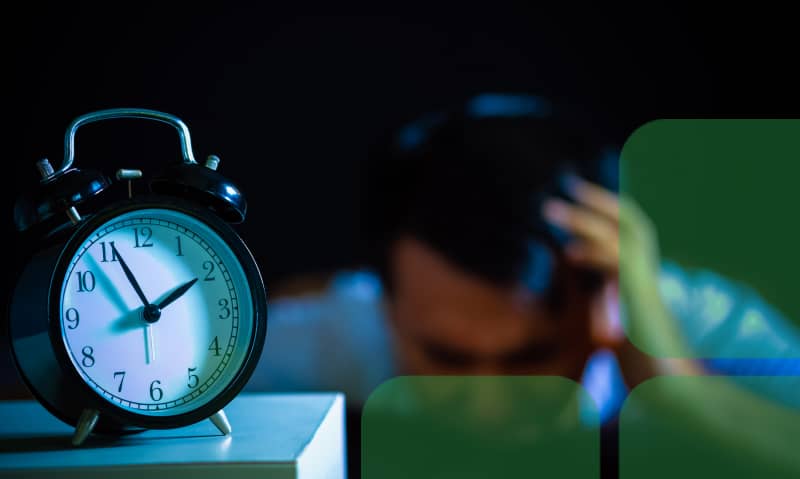Sleep Apnea: Signs, Symptoms, and Treatment

What You Need To Know About Sleep Apnea Symptoms and Treatment
Sleep apnea affects millions of adults in the United States, but many cases remain undiagnosed and untreated. It’s the most common sleep disorder and often presents symptoms that many people consider normal. Snoring, daytime fatigue, and dry mouth are just a few examples of frequently seen symptoms that aren’t seen as abnormal by busy adults.
If you’ve been snoring nightly, feeling tired despite clocking in your eight hours, or feeling restless during the night, you may have sleep apnea.
What is sleep apnea?
Sleep apnea is a sleep disorder that occurs while you sleep. There are three different types of sleep apnea: obstructive, central, and complex.
Central sleep apnea is fairly rare and is triggered by the nervous system. Complex sleep apnea is also uncommon and is characterized by a case of central and obstructive sleep apnea occurring simultaneously. Obstructive sleep apnea (OSA) is by and large the most common form of sleep apnea, and it’s the form we’ll be discussing here.
As its name suggests, OSA occurs due to an obstruction in the airway that momentarily blocks breathing. The obstruction is usually caused by the soft tissues and relaxed muscles around the throat. When inhaling, these soft tissues collapse inward toward the airway, causing the stereotypical snoring sound and interrupted breathing.
How do I know if I have this disorder?
Sleep apnea is often identified through symptom evaluation and discussion. The majority of OSA cases present symptoms that are characteristic of OSA and easily recognized by a dentist or doctor. By discussing the symptoms you’re experiencing, most healthcare professionals familiar with OSA will be able to refer to a sleep specialist for further evaluation.
Your chances of undiagnosed OSA are high if you’re experiencing:
- Chronic snoring
- Frequent restlessness or insomnia
- Sudden waking without obvious cause
- Shortness of breath upon waking
- Dry mouth or sore throat upon waking
- Headache or neck discomfort upon waking
- Chronic daytime fatigue
- Mental fog
A doctor may recommend an overnight sleep study to form a diagnosis. An overnight sleep study, also known as a PSG, monitors your brain activity, blood oxygen levels, muscle movement, and many other functions you wouldn’t be aware of while sleeping. In some cases, you may be able to do an at-home sleep test rather than stay at a sleep clinic.
How is this disorder treated?
Obstructive sleep apnea typically responds very well to treatment. Most mild to moderate cases can be diagnosed and relieved relatively quickly.
What’s unique to OSA treatment is that it focuses on resolving the symptoms rather than the underlying cause. This is different from other health issues, which typically aren’t able to be resolved until the underlying cause is cured. The reason for this is that OSA can be triggered by factors that can’t be immediately fixed, such as naturally having more soft tissue in the throat area.
Symptoms of obstructive sleep apnea can be treated by:
- Using a MAD (mandibular advancement device) to adjust the jaw position
- Using a CPAP machine when sleeping
- Sleeping on your side
- Sleeping with your upper body elevated
- Taking doctor-approved allergy medication to relieve chronic sinus congestion
- Speaking with a doctor about a safe and effective weight-loss program
In addition to treatments available under the supervision of a dentist or doctor, you can also improve your symptoms by:
- Doing something active every day, even if it’s just a short walk
- Practicing deep breathing exercises
- Eating a nutritious diet with minimally processed foods
- Avoiding sleep aids, unless advised by a doctor
- Quitting smoking, vaping, and other tobacco use
- Limiting alcohol consumption
If you’re doing everything you can to relieve your symptoms but you and your dentist or doctor aren’t seeing results, you may need to consider surgery.
Can sleep apnea be reversed?
OSA can be disruptive to every facet of your life. Even if your symptoms are responding well to treatment, you may dream of being able to go without your MAD or your CPAP machine. This might leave you wondering, “At one point I didn’t have OSA. Can’t I reverse this condition?”
Reversing OSA is possible, but it is also difficult. Most cases of OSA develop from weight gain, aging, or excess throat tissue. If your OSA seems to have developed after weight gain, then weight loss may help reverse your condition. If your OSA can’t be treated through lifestyle changes, you may need to have the extra throat tissue removed through surgery.
Sleep Apnea Therapy at Farless Dental Group in Greensboro, North Carolina
If you live in or around Greensboro, North Carolina, and suspect you have OSA, the team at Farless Dental Group can offer valuable help and treatment.
Our team is experienced in sleep apnea therapy from a dentistry perspective. After an initial evaluation, we’ll discuss your symptoms. Once the screening is complete, we can work with your doctor to refer you to a specialist for diagnosis.
For the majority of OSA cases, we can offer guidance on alleviating symptoms through lifestyle changes and provide comfortable, effective mandibular advancement devices (MADs) to improve breathing. MADs will gently reposition your jaw to prevent it from falling backward and pushing soft tissue into the airway.
Schedule your evaluation today by calling our office or requesting a visit online.